Nihil Unbound
Interview by Richard Marshall.
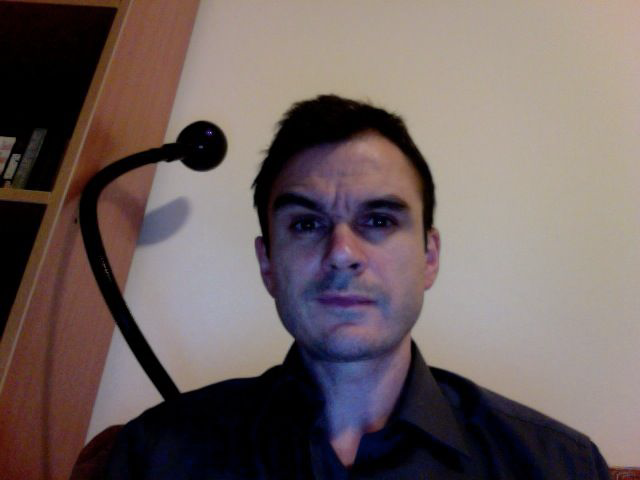
'In a telling formulation, Sellars suggests the Manifest Image is the medium in which humans first encountered themselves as humans, by which I think he means it is the manifestation of a kind of human self-consciousness: the medium in which we conceive of ourselves as humans engaged in pursuing various practical and cognitive goals.'
'the myth of Jones proposes that we did not always understand ourselves as minded beings motivated by thoughts and sensations; we had to learn how to do this and acquiring the resources to do so was a momentous step in our cognitive evolution.'
'One of Sellars’s deepest insights is the idea that to characterize someone as thinking is not to give an empirical description of them but to situate them in the logical space of “giving and asking for reasons.” To appreciate the import of this distinction involves understanding the difference between empirical-descriptive discourse and normative discourse.'
'To refuse to subordinate truth to life is to insist that it matters whether or not anything matters. Knowing that nothing matters matters because it makes a difference to thinking. This is a difference in and for thinking, but a real difference nonetheless. This is the truth of nihilism. Thinking something true makes a new kind of difference, one which differs from other differences. It makes a difference in what thinking can do.'
Ray Brassieris a philosopher who broods on Wilfrid Sellars' notion of the manifest image, the myth of Jones, the ideal of Enlightenment, folk psychological discourse, Adorno and Horkheimer, Quentin Meillassoux’s notion of ‘correlationism’, the importance of Badiou, Laruelle and negation, death, time, Nietzsche, Heidegger, Ligotti and nihilism, Nick Land, decorum and why mainstream analytic philosophers tend to ignore continentals, and vice versa. Wow!...
3:AM:What made you become a philosopher?
Ray Brassier:An encounter with Zeno’s paradoxes during a secondary school class on the Ancient Greeks. I was 13 and had never heard of philosophy previously. My curiosity was piqued and since philosophy was not offered at my school, I followed up on my own, reading everything I could in public libraries. My interest gravitated early on towards Continental philosophy, particularly figures like Hegel, Heidegger, and Sartre. I did not understand them, but their difficulty seemed glamorous. I was aware of the analytic tradition and did my best to learn about it, even though much of it was too technical for me to understand. Like many, I suspect, I found the difficulty of analytic philosophy unglamorous and therefore less appealing. This is regrettably superficial but superficiality is characteristic of youth. In my late teens I became enamored of Nietzsche, Bataille, and Artaud.
This led me directly to French post-structuralism, whose luminaries all hailed their influence (I could read French because of a French father). By this time I had left school but had no desire to pursue tertiary education and after a long bout of unemployment managed to earn a living doing various menial jobs. But I carried on reading in my spare time and as my dissatisfaction with everything intensified, I decided to commit to the full-time study of philosophy. Despite my absence of qualifications, I was able to register as a mature student at an ex-polytechnic (the University of North-London, long since defunct) whose philosophy program was attractively ecumenical. Once embarked, I never looked back.
3:AM:To understand the significance of Wilfrid Sellars’ notion of the ‘Manifest image’ and the myth of Jones for your defence of the Enlightenment can you say something about these things. What do you think the manifest image is, and what’s the myth of Jones?
RB:The Manifest Image is Sellars’s term for the system of concepts we use to understand ourselves and our world in our everyday life. Philosophers have contributed to its development. It contains notions like that of “person”, “mind”, “thing”, “property”, “belief”, “desire”, “action”, “intention”, and a host of other related notions. It is an extremely sophisticated system of concepts that has developed out of our practical interactions and activities over millennia of human cultural evolution. It is structured around certain fundamental distinctions, such as the difference between minded and mindless things, or between living and lifeless things. (Such differences are fundamental and irreducible within the Manifest Image, but perhaps not beyond it.) The term “manifest” is not supposed to connote “superficial” or “illusory”, at least not for Sellars. In a telling formulation, Sellars suggests the Manifest Image is the medium in which humans first encountered themselves as humans, by which I think he means it is the manifestation of a kind of human self-consciousness: the medium in which we conceive of ourselves as humans engaged in pursuing various practical and cognitive goals.
In Sellars’s account, the “myth of Jones” is perhaps the most momentous step in the construction of the Manifest Image and hence in the development of our collective self-conception as humans. It is the step through which we begin to understand ourselves both as minded beings motivated by beliefs and as sentient beings affected by sensations. In Sellars’s myth, Jones is the genius who first suggests that what humans say and do can be explained as the outward manifestation of inner mental states of believing, desiring, and sensing. In other words, the myth of Jones proposes that we did not always understand ourselves as minded beings motivated by thoughts and sensations; we had to learn how to do this and acquiring the resources to do so was a momentous step in our cognitive evolution.
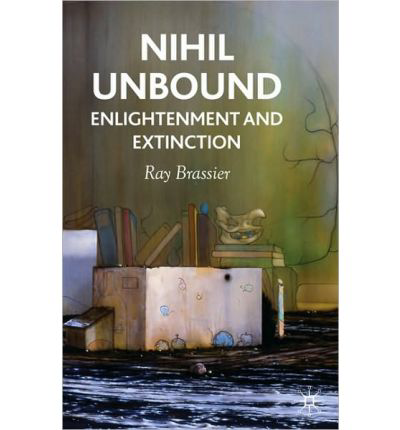
3:AM:So how do they help you defend the Enlightenment – and what makes you think it needs defending?
RB:I take the ideal of Enlightenmentto involve a commitment to self-understanding. Sellars’s account of the Manifest Image and the myth of Jones suggests that our self-understanding has evolved; it is not simply given. More specifically, neither the capacity for self-understanding nor the ways in which we understand ourselves are fixed and immutable. This is to reject the Cartesian idea that we know ourselves best of all and do not have to learn how to know ourselves. It was Kant who first rejected the Cartesian premise of the mind’s self-transparency: the idea that when it comes to knowing our own minds, we just know what we are thinking or feeling, and do not have to learn how to perceive ourselves thinking or feeling. Sellars’s myth of Jones is an extension of Kant’s critique of the Cartesian notion of the mind’s self-transparency: the very idea of the mind as thinking, and the classification of thoughts as beliefs, desires, or sensations, involves a very sophisticated conceptual framework which had to be developed over time. It is acquired, not innate. This means that philosophies that start from consciousness or subjectivity as the Archimedean point of self-knowledge and self-understanding from whence all other knowledge and understanding must be derived are fundamentally mistaken.
Consciousness is not the ineluctable starting point for self-understanding because there is a difference between being conscious and understanding oneself as a conscious being. The difference is between being in a certain state and knowing oneself to be in a certain state. Sellars’s “myth of Jones” is deployed against what Sellars calls “the myth of the categorial Given”: the idea that to be aware of something is to be aware of it as something. This short circuit between “awareness of” and “awareness as” inhibits the project of self-understanding because it perpetuates the assumption (which Kant calls “dogmatic”) that there is a point where being and knowing coincide.
I think Enlightenment as an epistemic ideal involves rejecting the appeal to a fundamental stratum of non-conceptual self-evidence. It needs to be defended by philosophers because contemporary theoretical discourse in the humanities is replete with such appeals: for instance, appeals to the authority of “lived experience”, “embodiment”, “affect”, etc. This paves the way for the rehabilitation of religious revelation as a source of epistemic authority (hence the so-called “post-secular turn” in the humanities). Of course, there is a complicated story about why the cognitive and political ideals of the Enlightenment fell into disrepute in 20th century academic discourse. Part of that story has to do with political history. I am well aware of the political iniquities for which the Enlightenment is habitually reproached. Nevertheless, I think the philosophical component of this reproach is remarkably weak insofar as it involves the uncritical valorization of the non-conceptual, the affective, and the sensory, over conceptual self-understanding.
3:AM:You talk about the ‘normative pretentions’ of folk-psychological discourse and an emerging approach which eliminates belief in ‘belief’ with sympathy. Is this because you’re wanting to reintegrate mind into the scientific image?
RB:My earlier work, specifically my 2007 book, misstated the nature of the tension between the normative dimension of “folk psychological” discourse and developments in cognitive neuroscience. “Folk psychology” is not a term used by Sellars, although it was taken up by philosophers he influenced, such as Daniel Dennettand Paul Churchland, eventually becoming the critical target of “eliminative materialism.” For eliminative materialists, “folk-psychology” names the pre-scientific, commonsense understanding of the mind which will be replaced by cognitive neuroscience, from whence categories such as “belief” and “desire” will have been eliminated. I admire eliminative materialism’s revisionary stance and I believe our understanding of the mind should be rendered compatible with our best science. But I now think it’s a mistake to identify the normative core of the Manifest Image with folk-psychology understood as a theory committed to the existence of entities such as beliefs and desires. One of Sellars’s deepest insights is the idea that to characterize someone as thinking is not to give an empirical description of them but to situate them in the logical space of “giving and asking for reasons.” To appreciate the import of this distinction involves understanding the difference between empirical-descriptive discourse and normative discourse. This is what I failed to appreciate in my book and I now think my support for the attempt to eliminate the manifest understanding of mind rested on precisely this confusion. By distinguishing between the normative and descriptive dimensions of discourse, one can distinguish between the inherently normative (i.e. rule-governed) character of “giving and asking for reasons” and the psychological categories invoked in attempts to describe and explain this practice. These attempts are fallible and corrigible. So while the normative dimension of discourse is irreducible, its descriptive categories are not.
The commitment to the norm of better explanation is precisely what motivates the elimination of inadequate psychological categories. So I think it’s possible to maintain the irreducibility of discursive norms while insisting on the dispensability of specific psychological categories, such as hoping, wishing, wanting, or even believing. These are categories that may be modified, revised, or abandoned in light of new theories about the mind-brain. So our extant psychological vocabulary is neither fixed nor immutable. It’s subject to infiltration and augmentation by various theoretical discourses. For instance, psychoanalytic categories such as “neurosis”, “psychosis”, “mania”, and “fixation” have become part of our everyday psychological vocabulary and we now routinely interpret states of anxiety, excitement, or depression in terms of physiological factors involving levels of serotonin, adrenalin, or blood sugar. To say that the characterization of thinking has a normative function that is irreducible to neurophysiological processing is not to say that our extant classification of the forms of thinking is incorrigible.
3:AM:Do the critiques of scientific rationality by Adornoand Horkheimerhelp your approach?
RB:The wholesale reduction of science to “instrumental rationality” is not very helpful and slightly hysterical. It’s remarkably similar to Heidegger’sdenigration of science as mere “calculation”. This is unsurprising when one considers that all three thinkers were reacting against what they perceived as the excessive rationalism of neo-Kantianism, the dominant academic philosophy in early twentieth century Germany. However, I do appreciate the need to come up with an account of what Horkheimer called “objective reason”. But the challenge would be to come up with a non-metaphysical account of objective reason and Horkheimer’s work is not very persuasive in this regard. I am interested in Adorno’s work, particularly his conception of “negative dialectics”. But I find the account of “domination” which lies at the heart of Dialectics of Enlightenmentby far the weakest aspect of the book. Unfortunately it’s also the most influential. No doubt its hyperbolic character is a consequence of the historical period in which the book was written. But ramping up philosophical hyperbole to match historical anxiety is not the best way for philosophy to comprehend its time in thought. Sometimes exaggerations are merely false.
3:AM:Quentin Meillassoux’snotion of ‘correlationism’ is important to your account. What is this notion?
RB:Meillassoux defines “correlationism” as the claim according to which we can only ever access the correlation between mind and world: we cannot conceive either term independently of the other. Correlationism rejects metaphysical realism understood as the claim that the way the world is does not depend on how we take things to be. It also rejects the Cartesian corollary, i.e., the claim that the way the mind is does not depend on the way the world is. Meillassoux rejects correlationism wholesale and wants to move beyond it once and for all. I think it is important to distinguish the good and the bad senses of correlationism. I accept correlationism as an epistemic doctrine that insists we can’t know objects without concepts. This sound epistemic doctrine only becomes objectionable if it’s conflated with a contentious skeptical claim: the claim that we can never really know whether or not objects truly correspond to the concepts through which we know them. This skeptical claim is rooted in a fallacy of equivocation, whose particular variant is known as “Stove’s Gem”. I endorse correlationism in the first, epistemic sense, but not in the second, skeptical sense. I share Meillassoux’s antipathy to the skeptical version of correlationism, but I think he’s wrong to think it follows ineluctably from the first, epistemic or Kantian sense of correlation. Indeed, the suggestion that we can only refute skepticism by dispensing with epistemic correlation, understood as the synthesis of concepts and intuitions, seems to me untenable, since it assumes that either reason or sensibility can separately intuit the real, the former being the rationalist variant of the myth of the Given, the latter its empiricist version.
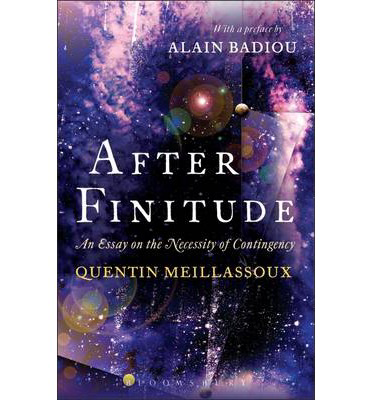
I don’t think Meillassoux’s appeal to a version of intellectual intuition successfully avoids the difficulties associated with what Kant called “dogmatic rationalism”. Once correlationism is understood as a strictly epistemic doctrine, it can be seen to be the condition for realism—not just empirical realism, which is the corollary of Kant’s transcendental idealism, but transcendental realism, which asserts the mind-independent existence of theoretical entities (this obviously requires a lot of unpacking). Unlike Meillassoux, I reject the very idea of a “non-correlational realism” because I think the issue of realism is tied to that of explanatory justification, which involves epistemic correlation. The point is to know what we mean when we qualify something as “real” and to be able to adjudicate questions about something’s “reality” on rational as opposed to dogmatic grounds.
3:AM:Why do you find Badiouhelpful in avoiding what you see as a problem in Meillassoux’s account of the relationship between nature and reason, that of an idealism of mathematical intuition?
RB:As I said above, Meillassoux’s attempted overcoming of correlationism relies on an appeal to a kind of intellectual intuition, which he calls “dianoetic intuition”. I’m afraid this saddles him with all the problems of dogmatic rationalism: the assumption of a pre-established harmony between the order of thought and the order of being. Funnily enough, Badiou’s account is more persuasive here precisely because it is more Kantian (despite his overt hostility to Kantianism). Badiou’s (notorious) claim that ontology is mathematics is a claim about discourse, not about reality. It says that ontology understood as discourse about being is mathematical; it does not say that being is intrinsically mathematical. The latter claim would be “Pythagoreanism”, which Badiou rejects. This is a subtle but important difference. It means that mathematical ontology has a history, because mathematical discourse has a history. Since the resources of ontology are discursive, they develop over time. This means that what is sayable of “being qua being” varies over time. This is not just historicism because the historicity proper to mathematical discourse differs from, and is irreducible to, that of non-mathematical discourse. This is one of the Hegelian strands in Badiou’s thought that I most appreciate.
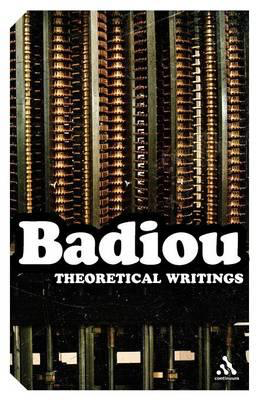
But it does not soften Badiou’s complete rejection of naturalism; a rejection shared by Meillassoux. Thus for both Badiou and Meillassoux mathematics is the privileged bearer of rationality: no other discourse comes close; not logic, not physics, and certainly not biology, which Badiou dismisses as “that wild empiricism disguised as science.” This makes mathematical rationality a miraculous dispensation, thoroughly inexplicable in terms of other human cognitive capacities. I find such anti-naturalism exorbitant. Reading Sellars has made me appreciate the inadequacies of “bald naturalism”; nevertheless, philosophy ought to be able to give an account of rationality that is not wholly detached from science’s account of nature, even if it is not straightforwardly reducible to it. The power of Sellars’s Kantian naturalism is its ability to reconcile the normative character of rationality with science’s non-normative account of nature. But Sellars does so while providing a thoroughly de-mystified conception of rationality: reasoning is rule-governed discursive practice embodied in the pattern-governed behavior of language using animals. As I see it, the problem facing Badiou and Meillassoux is their wish to embrace science’s de-mystification of nature while cleaving to a more or less mystificatory conception of rationality (for an illuminating discussion of Badiou and naturalism, I recommend Fabio Gironi’s Naturalizing Badiou: Mathematical Ontology and Structural Realism
3:AM:What’s the anatomy of negation and how does the work of Francois Laruellehelp here?
RB:The “anatomy of negation” was my attempt to develop a non-Hegelian account of negation and negativity using the work Alain Badiou and François Laruelle. I was trying to develop a notion of “non-dialectical negativity” as part of a concept of extinction that would transform the understanding of death and time elaborated in phenomenology. I drew on Laruelle to define extinction as “being-nothing”: this is the idea of a void exercizing a power of determination. I don’t think I succeeded in de-coupling negativity from dialectics; partly because my rejection of Hegel was misguided, the lingering consequence of my youthful attachment to post-structuralism. I now think what I was trying to do with the concept of extinction can only be accomplished using the resources of what Hegel called “determinate negation.” This is why I’ve become very interested in Hegel again.
3:AM:How does the relationship between death and time in Heidegger and Deleuze address the issue of eradicating the Sellarsian manifest image?
RB:It’s part of my attempt to explain how science is transforming our manifest understanding of death and time. Nietzsche saw that ultimately the problem of nihilism is the problem of what to do with time: Why keep investing in the future when there is no longer any transcendental guarantor, a positive end of time as ultimate reconciliation or redemption, ensuring a pay-off for this investment? Nietzsche’s solution – his attempted overcoming of nihilism – consists in affirming the senselessness of becoming as such – all becoming, without reservation or discrimination. The affirmation of eternal recurrence is amor fati: the love of fate. It’s an old quandary: either learn to love fate or learn to transform it. To affirm fate is to let time do whatever it will with us, but in such a way that our will might coincide with time’s. The principal contention of my book, and the point at which it diverges most fundamentally from Nietzsche, is that nihilism is not the negation of truth, but rather the truth of negation, and the truth of negation is transformative. This truth is encapsulated in the concept of “extinction”. It does not just refer to the termination of biological species or the annihilation of the physical universe (although it also refers to these things). It is deployed as a philosophical rather than scientific concept in order to address the following question: “How are we to reckon with the claim that the physical conditions upon which life and thought depend will eventually (if our best current science is to be believed) cease to exist?”
The concept of extinction constructed in response to this question is neither biological nor cosmological. It is supposed to designate the lapsing of a prevalent philosophical understanding of life as generative of thought. So it’s an attempt to radicalize and generalize biological accounts of the end of terrestrial life and cosmological accounts of the end of the universe and endow them with a universal scope in order to address the following quandary: "How are we to make sense of the end of sense as philosophers have hitherto understood it?"
The answer offered by the book is that we grasp the end of sense as the extinction of sense, but an extinction that renders the end of sense intelligible as the separation of intelligibility from sense. Extinction marks the conceptual re-inscription of the alleged limit of conceptualization. The extinction of sense is the end of a determinate conception of the end through which the conceptual was enclosed within the bounds of sense. Thus extinction indexes a fundamental transformation, but one which is transcendental rather than empirical: it overturns the phenomenological subordination of the conceptual to the non-conceptual, as rooted in the originary dimension of the human phenomenon, whether this be construed in terms of the transcendence of intentionality or of being-in-the-world. Extinction is a trauma for phenomenology because it subverts the transcendental pretensions of all those variants of phenomenology for which human experience remains the fundamental phenomenon.
3:AM:You discuss Nietzsche and the overcoming of the Sellarsian nihilism as well as linking this with Freud’s death drive. Can you sketch out the thought here?
RB:I’m not sure what you mean by “Sellarsian nihilism”: I see Sellars as a resource for the rational overcoming of nihilism (see below). But let me try to sketch the link step by step. First, extinction is the negation of “meaning” and “life”; but a determinate negation that transforms the possibilities of existence. The aim is to propose a cognitive as opposed to aesthetic resolution of the problem of nihilism. Second, this cognitive resolution proceeds through a transcendental re-inscription of extinction capable of springing intelligence from the bounds of sense. By “transcendental” I mean a transposition of categories across the manifest and scientific images, as opposed to a metaphysical fusion of scientific categories, in this instance, the fusion of a biological “death-drive” and cosmological “dark energy”. Third, the concept of extinction is generated by establishing an analogy between two negations: the negation of the categorial difference between life and death in Freud's subordination of the organic to the inorganic, and the negation of the categorial difference between matter and void in whatever “force” is responsible for the long-term disintegration of the universe's physical structure.
What drives this attempted philosophical universalization of extinction is the conviction that attentiveness to the sciences obliges us to reorganize our categories and to recognize the problematic reality of something for which we do not yet have a name. This unknown “something” manifests itself as the cancellation of the difference between life and death in post-Darwinian biology, just as it manifests itself as the cancellation of the difference between particles and void in contemporary cosmology.
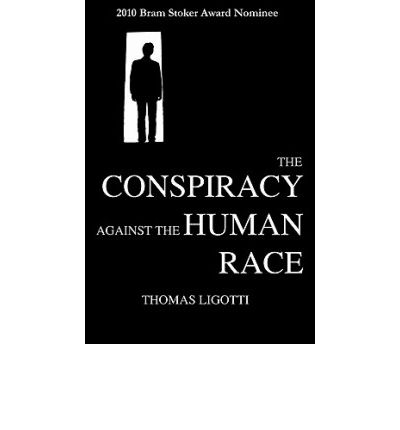
3:AM:Though not going so far as saying life is malignantly useless and a contrivance of horror, which is the claim of Ligotti’s brand of nihilism, you nevertheless defend Ligotti from charges of bad faith ie if life’s so bad then why write books about it, go on etc. What’s the argument? Is it kind of Beckett’s ‘I can’t go on. I go on’?
RB:I think the argument is this: our interest in staying alive should not be allowed to override our judgment about the worth of staying alive. This is an un-Nietzschean thought, since Nietzsche insists that the value of life can never be evaluated because life is the condition of evaluation. The coherence of Ligotti’s “nihilism” (he prefers “pessimism”) requires that the conditions of evaluation be distinguished from the requirements of living. This is what I mean by distinguishing the interests of thinking from those of living. I think Sellars’s brand of naturalism allows one to do just this. Biological interests do not pre-determine cognitive interests. The problem for Ligotti is that thinking is also de-valued in his account. Why bother to think? I think this leads to the paradox of nihilism: If nothing matters, then even the thought that nothing matters doesn’t matter. And if it doesn’t matter whether anything matters or not, then there’s no real difference between believing nothing matters and believing something matters. Believing or not believing is optional. Everything can carry on as usual. This why postmodern skeptics like Rorty can laud Nietzsche’s destitution of truth even as they shrug off its allegedly catastrophic import. To refuse to subordinate truth to life is to insist that it matters whether or not anything matters. Knowing that nothing matters matters because it makes a difference to thinking. This is a difference in and for thinking, but a real difference nonetheless. This is the truth of nihilism. Thinking something true makes a new kind of difference, one which differs from other differences. It makes a difference in what thinking can do. This is what I’m interested in.
3:AM:You also say that a ‘cringing deference towards social utility … straightjackets most professional philosophers.’ Can you expand on this? Why characterize the attitude of professional philosophers towards social utility in such a way? Is it more than bold rhetoric – is there evidence?
RB:The remark you cite comes from my preface to Ligotti’s book, The Conspiracy Against the Human Race. I was trying to say that the imperative for philosophy to be socially “useful”, to contribute positively to society, can end up diminishing its capacity to mount a truly radical challenge to established opinion about what is right and good, whether on the right or the left. And I don’t think philosophy ought to defer to established opinion on such matters. Philosophers should resist the temptation to be publicly virtuous. Given an unjust society (i.e. ours), from the vantage of what counts as the public good, they are corrupters, not edifiers. The desire to be seen to be virtuous, to make a positive contribution, is a deleterious symptom of professionalization. Philosophy’s social utility is an ersatz for its duty to mount challenges to the entire social order.
3:AM:Is Nick Land’srejection of academic philosophy – both continental and Anglo-American– a move that you align with somewhat? Is it stultifying decorum that you’re against? Is philosophical decorum always stultifying?
RB:No, decorum is not necessarily stultifying. It’s a necessary constraint of intellectual discipline, without which philosophy, which I see as a necessarily collective enterprise, is impossible. The question is whether the academy is the only place for exercising such collective discipline. I don’t think it is; certainly not now that academic activity is becoming ever more shaped by the demands of the market. I admired Land’s philosophical audacity and sympathized with his animus towards the compromises constitutive of academic existence. But I think his ultimately romantic rejection of philosophical discipline has had intellectually disastrous consequences. It seems to have led him to embrace the politics of “neo-reaction”, which Pete Wolfendale accurately described as “even sillier than fascism.”
3:AM:You’ve translated a lot of Badiouinto English and made huge claims about his importance eg his ‘Being and Event’ is ‘ a book which may yet turn out to have effected the most profound and far-reaching renewal of possibilities of philosophy since Heideger’s ‘Being and Time’ etc. You aren’t alone – Zizek makes similar huge claims for his importance. I confess that I’m skeptical – not because I am smart enough to work it out for myself – but when I read Pat Churchland, Jerry Fodor, Tim Williamson, Kit Fine, Tim Maudlin, Saul Kripke , Elizabeth Andersonetc they never mention Badiou as an influence. They never mention him at all in fact. So why do you say Badiou is such an important contemporary philosopher? What are they missing?
RB:Badiou is a controversial figure. He is revered by some but reviled by many. I think he is important because his work represents a decisive break with many of the fundamental tenets of Continental (philosophical) orthodoxy. He defends the thoughtfulness and creativity of mathematics and mathematized science against those who would reduce them to thoughtless calculation. He re-asserts the intimate link between rationality and justice against those who see in them nothing but forms of domination and power. He pits the liberating power of abstraction and universality against the pathos of embodied particularity and lived experience. He proposes a new conception of truth in terms of a notion of “genericity” creatively appropriated from mathematics. And he is scathing about the creeping religiosity of much contemporary philosophy even as he attacks the cynical deployment of secularism as a cover for Islamophobia. These are not popular views among mainstream Continental philosophers. So it is unsurprising that his mix of combative rationalism and uncompromising atheism should have made him many enemies. Of course, he can and has been vigorously criticized for his specific philosophical claims. I have done so myself. But the animus against him is not strictly philosophical: it is ideological and even affective. Badiou’s detractors don’t just think he is wrong; they think he is bad. He wants to reanimate things which they have devoted their careers to burying: reason, truth, and revolution. So he counts as a figure of considerable significance no matter what one thinks of his views. I am in complete sympathy with the spirit of Badiou’s philosophy even if I vehemently disagree with its letter.
That he is more or less ignored by analytic philosophers is unsurprising: his combination of mathematical ontology and post-Maoist politics is almost guaranteed to induce apoplexy among mainstream analytics. So asking why the figures you mention above don’t cite him is a bit like asking why Continental luminaries like Žižek, Nancy, Rancière, Negri, Malabou, Stiegler, or Sloterdijk never cite Churchland, Fodor, Williamson, Fine, Maudlin, or Kripke. It may be lamentable, but it is not surprising.
3:AM:And for the readers here at 3:AM, are there five books you could recommend that would take us further into your philosophical world?
RB:Sure.
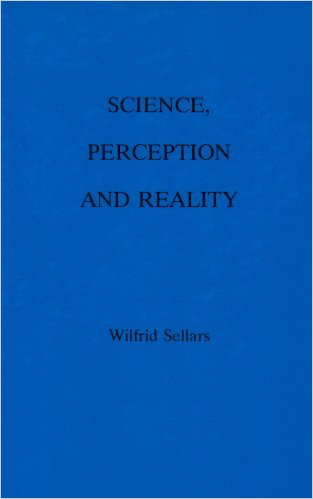
Wilfrid Sellars Science, Perception, and Reality(Ridgeview Publishing Co. 1991)
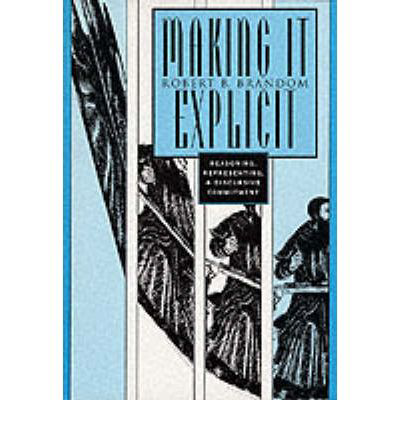
Robert BrandomMaking it Explicit: Reasoning, Representing, and Discursive Commitment(Harvard University Press 1994)
Danielle Macbeth Realizing Reason: a Narrative of Truth and Knowing(Oxford University Press 2014)
Alain Badiou Theory of the Subject, Tr. Bruno Bosteels (Continuum 2009)
Reza Negarestani Intelligence and Spirit(forthcoming, Urbanomic)
ABOUT THE INTERVIEWER
Richard Marshallis still biding his time.
Buy his book hereto keep him biding!